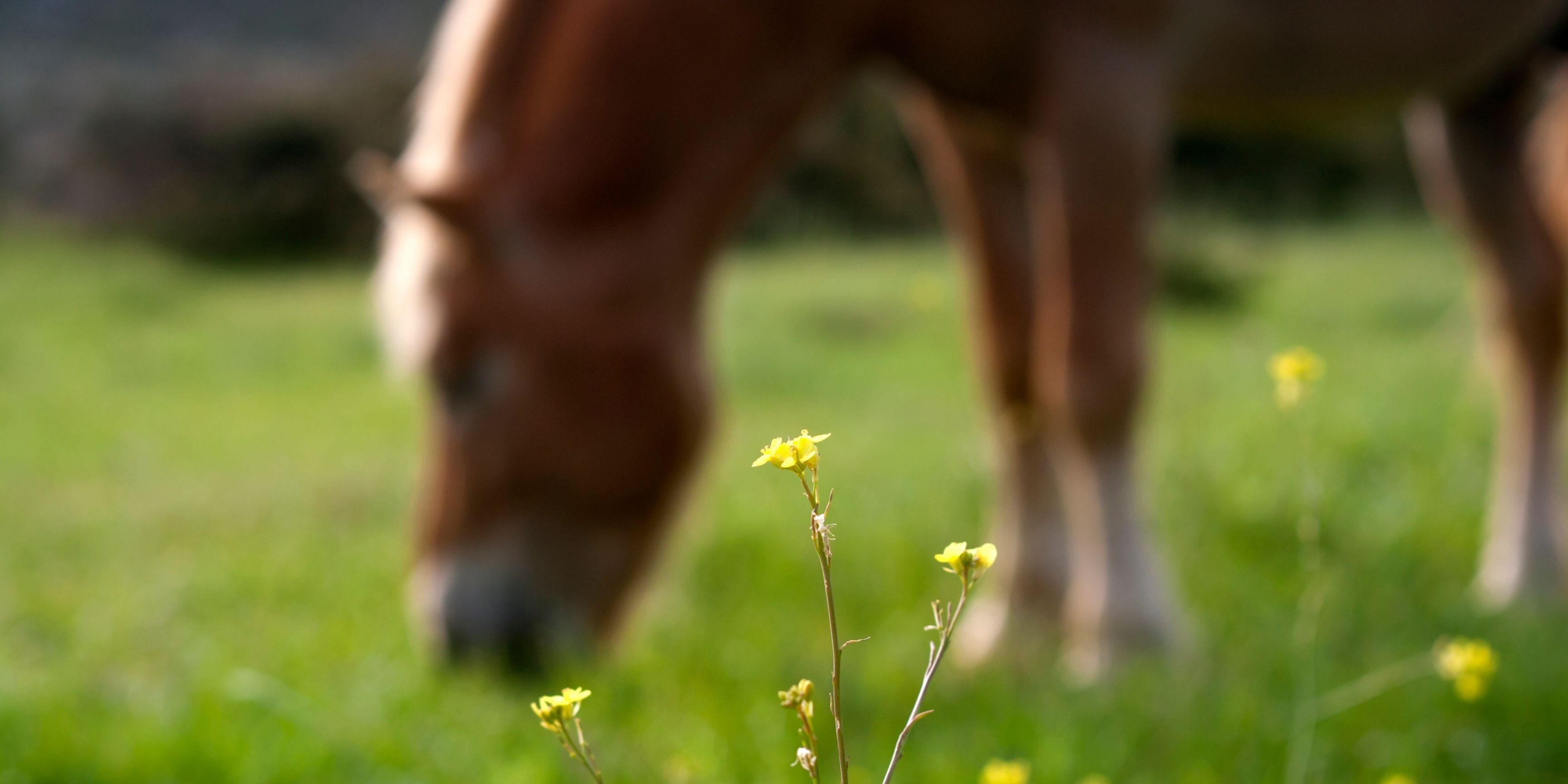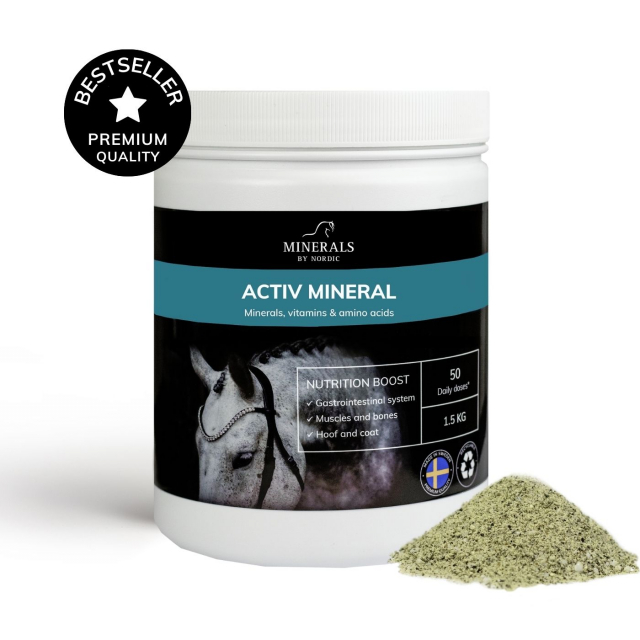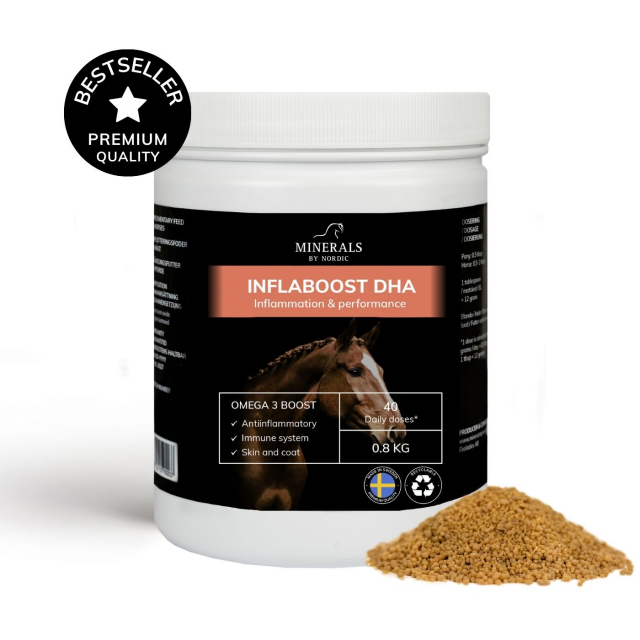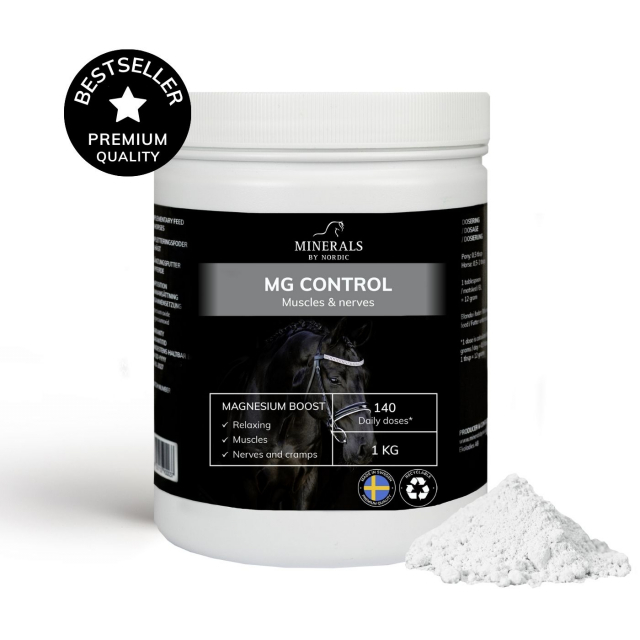
Horse feed and health problems
Proper feed is crucial for the health of horses in several ways. It affects everything from their physical condition to their behavior and overall well-being.
Nutritional balance
Horses need a balanced diet rich in various nutrients to function optimally. The diet should include an appropriate balance of energy, protein, fats, vitamins, and minerals:
- Energy: Energy needs vary depending on the horse's activity level, age, and metabolism. An improper balance can lead to weight problems such as obesity or underweight.
- Protein: Important for muscle maintenance, growth, and repair. A lack of protein can lead to muscle loss and other health issues.
- Fats: Provide concentrated energy and are important for healthy skin and coat.
- Vitamins and minerals: Essential for many bodily functions, including bone health, blood function, and the immune system. For example, calcium and phosphorus are necessary for strong bones and teeth.
Digestive health
A horse’s digestive system is designed to process small amounts of feed continuously throughout the day. A diet high in forage like hay and grass promotes healthy gut movement and prevents digestive issues such as colic and ulcers, which are common in horses that do not get enough fiber.
Disease prevention
Proper feeding is crucial for preventing specific nutrition-related diseases:
- Metabolic diseases: For example, proper feeding can help control conditions like equine metabolic syndrome and laminitis, both of which can be aggravated by overfeeding and/or improper diet.
- Muscle diseases: Such as tying-up syndrome, which can be influenced by imbalances in electrolytes and other nutrients.
General well-being and performance
A horse that is properly fed will have enough energy and stamina to perform required activities, whether it’s competition, work, or leisure riding. A well-balanced diet also supports mental health and reduces stress and behavioral problems that can arise from nutritional deficiencies.
Tailoring to individual needs
Each horse is unique in terms of size, age, activity level, health status, and specific nutritional needs. For example, growing foals, pregnant mares, older horses, and high-performance sport horses all have different nutritional requirements. Adapting feed to each horse’s individual needs is therefore essential for their optimal health.
Providing horses with the right feed is not just a matter of keeping them full; it is an important part of their daily care and has a direct impact on their health and ability to perform and thrive. Regular consultations with veterinarians or feed experts can help horse owners ensure their horses receive the nutrition they need to stay healthy and active.

Feeding horses correctly is crucial for their health, but it’s easy to make mistakes. Here is an overview of common feeding mistakes and how they can negatively affect your horse's health:
1. Overfeeding
Problem: Giving the horse too much feed, especially concentrates, can lead to obesity, which increases the risk of several diseases such as equine metabolic syndrome (EMS), insulin resistance, and laminitis.Solution: Measure and weigh the horse’s feed carefully and adjust the amount based on its activity level, body condition, and health status. Regular weight and condition checks are important!
2. Underfeeding
Problem: Not providing enough feed or essential nutrients can lead to weight loss, lack of energy, a weakened immune system, and in severe cases, malnutrition.Solution: Ensure the horse’s diet meets its basic energy and nutritional needs, especially during periods of intense work.
3. Unbalanced diet
Problem: Deficiencies or imbalances in key nutrients like vitamins and minerals can cause various health issues, including skeletal diseases in young horses, muscle disorders, and reproductive issues.Solution: Use well-balanced feeds and supplements tailored to the horse’s age, size, and activity level. Consult a knowledgeable feed expert to ensure a complete nutritional profile.
4. Insufficient forage
Problem: Horses need plenty of forage to keep their digestive systems healthy. Too little forage can lead to digestive problems such as colic and ulcers.Solution: Forage should make up the bulk of the horse’s diet. Ensure the horse has access to high-quality hay or pasture!
5. Using inappropriate feed
Problem: Using feed that doesn’t suit the horse’s individual needs, such as high-sugar or starch-rich feed for a horse with insulin resistance, can worsen health problems.Solution: Choose feed carefully based on the horse’s specific health conditions and consult a veterinarian or feed expert if needed.
6. Neglecting water and salt
Problem: Insufficient water intake can quickly lead to dehydration, especially if the horse is working hard or it’s hot outside. Salt deficiency can also negatively affect the horse’s health.Solution: Ensure fresh water is always available and consider providing a salt lick or electrolyte supplements as needed.
These common feeding mistakes can have significant consequences for your horse’s well-being and performance. Being attentive and proactive in managing your horse’s diet is key to keeping your horse healthy and happy.

 SWE
SWE



 ENG
ENG NO
NO AX
AX DE
DE